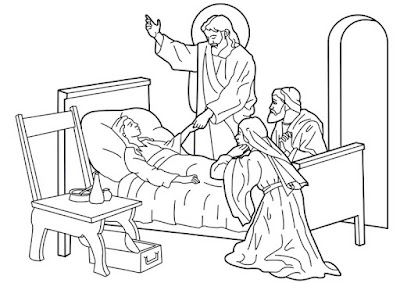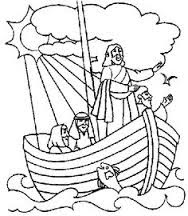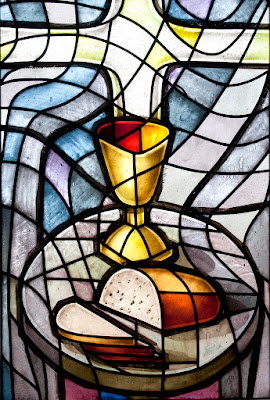XIII SUNDAY IN ORDINARY TIME - Mark 5:21-43
We are faced daily with the reality of death, being forced to accept our mortality. Since the moment of conception, we walk on a path that will take us to death. That is the reality of life. It is as if life and death are two sides of the same coin. Despite that, deep down in our hearts, we refuse to accept death as our final destination. We live nurturing a strong desire for immortality and repeating the unanswerable question: Why do we have to die?
Time and again, many people blame God. If He is loving, why does He allow us to suffer and die? Or is He our enemy? Is He jealous of us? Does He need to squash our most profound desire to affirm Himself? The first reading, taken from the Book of Wisdom, gives a clear answer: “Death was not God’s doing, he takes no pleasure in the extinction of the living.” Being created in the image of God, man has in him the seeds of immortality. Death does not come from God but from the Devil: “It was the devil’s envy that brought death into the world” (Wisdom 1:13-15, 2:23-24). Death should be the experience of being born to live in God and that passage from earthly life to heavenly life would be welcomed with joy and happiness. However, human sin bred revolt and sowed chaos destroying the harmonious relationship between God, humanity and nature. St. Francis of Assisi welcomed death as his sister who came to take him to God.
In the gospel, we have two situations of suffering and death. In both of them, Jesus shows compassion for those who suffer. From what we see, we know that anyone who experiences sickness and suffering tries all possible means to recover and be sound again. Like a loving father, hearing about Jesus, Jairus looked for him, presenting his daughter’s situation: “My little daughter is desperately sick. Do come and lay your hands on her to make her better and save her life.” And Jesus went without delay. The little girl died before Jesus’ arrival. Before death, Jesus gave hope to the grieving father with reassuring words: “Do not be afraid; only have faith.” And comparing death to sleep, Jesus ordered the little girl to get up.
In the second situation, we have a woman “who had suffered from a haemorrhage for twelve years”. She had spent all her money on doctors, without any improvement in her condition. In a way, she was desperate but, after hearing about Jesus, her hope was rekindled. Then, she approached Jesus with discretion. She suffered physically and emotionally because she lived in a state of impunity, being forced to stay away from people. Jesus healed her body and saved her soul. She could be reintegrated into society and lead a normal life.
With Jesus, we must learn a compassion that makes us actively present in the lives of those who suffer.
The Lord listened and had pity.
The Lord came to my help.
For me you have changed my mourning into dancing:
O Lord my God, I will thank you for ever.
(Psalm 30)




